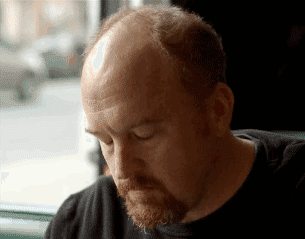As I’ve talked with other cancer patients and their families about the weird and wonderful conversations we’ve had with others about illness, a list of faux pas has emerged.
THINGS YOU SHOULDN’T SAY TO CANCER PATIENTS (OR THEIR FAMILIES)
“Everything happens for a reason.”

This is the emptiest platitude, spiritual bubblegum, infuriatingly trite. It swats away a terrible situation as the means to some higher end. It inadvertently sends the message that a person’s pain is overblown or unmerited. Bottom line: It tends to make people feel belittled.
“I know exactly what you’re going through.”

No. Even two people with the same disease won’t have the exact same experience. Declaring yourself an expert on another person’s experience can make a patient feel frustrated, voiceless, or patronized.
It’s more honest and comforting to admit that you don’t know what that person is going through.
“Have you tried…?”
“The alkaline diet/ juicing / cannabis oil / thinking positively will cure you. Just look at this naturalnews.com article / YouTube video!”

You know who’s probably endlessly researched cancer treatments? A cancer patient. Often we never get to step off this merry-go-round of options, options, options: we’re dizzy from reading hundreds of pages of medical literature, juggling all the choices, and carefully curating a treatment plan that works for us. It never stops,and so weighing in, unasked, with what worked for your Aunt Agnes is probably unwelcome. Unless you’re asked explicitly, keep medical advice to yourself.
I mean, unsolicited advice is bad manners in general. Marching up to a newly diagnosed acquaintance and bellowing “YOU SHOULD REALLY BE DOING AYURVEDIC YOGA” isn’t just unhelpful – it’s rude.
“You’re actually lucky because cancer makes you appreciate life!”

Okay. Maybe someone’s bout with illness has made you appreciate life. Maybe it’s given you perspective. But declaring the afflicted person “lucky” is just insulting.
“Oh, you have [insert type of cancer]? I know So-and-So who died of that.”

AHHHHHHHHH.
It goes without saying that people don’t say these things maliciously. You mean well. You want to say the right thing. It’s just all so terribly awkward and disturbing. So what should you say?
GREAT THINGS TO SAY TO CANCER PATIENTS (AND THEIR FAMILIES)
I’m sorry. Is there anything I can do?

This is perfect. Mix it up and use as needed: “That sucks. Can I help?” works! “Oh no. You’re in my thoughts” works too! “Well, shit. I’m here if you need me” is also apropos! All of these are versions of the same two statements: you’re sorry, and you’re available to help. That’s awesome! Yay!
I don’t know what to say.

You wish you could come up with something elegant and reassuring. Nothing comes to mind. Words fail you. If that’s the case, say “I don’t know what to say.” That simple statement is honest and it shows you care. It’s appreciated.

